What is glass fiber wallpaper?
Glass fiber wallpaper is a finishing material for walls, consisting of impregnated glass fabric. The surface has a relief pattern. Glass fiber wallpaper is made from glass blanks, which are melted under high temperature and the fibers are stretched. Threads are then created from them, and then a canvas or fiberglass by weaving. Later, the surface is covered with impregnation for the stability of the material.
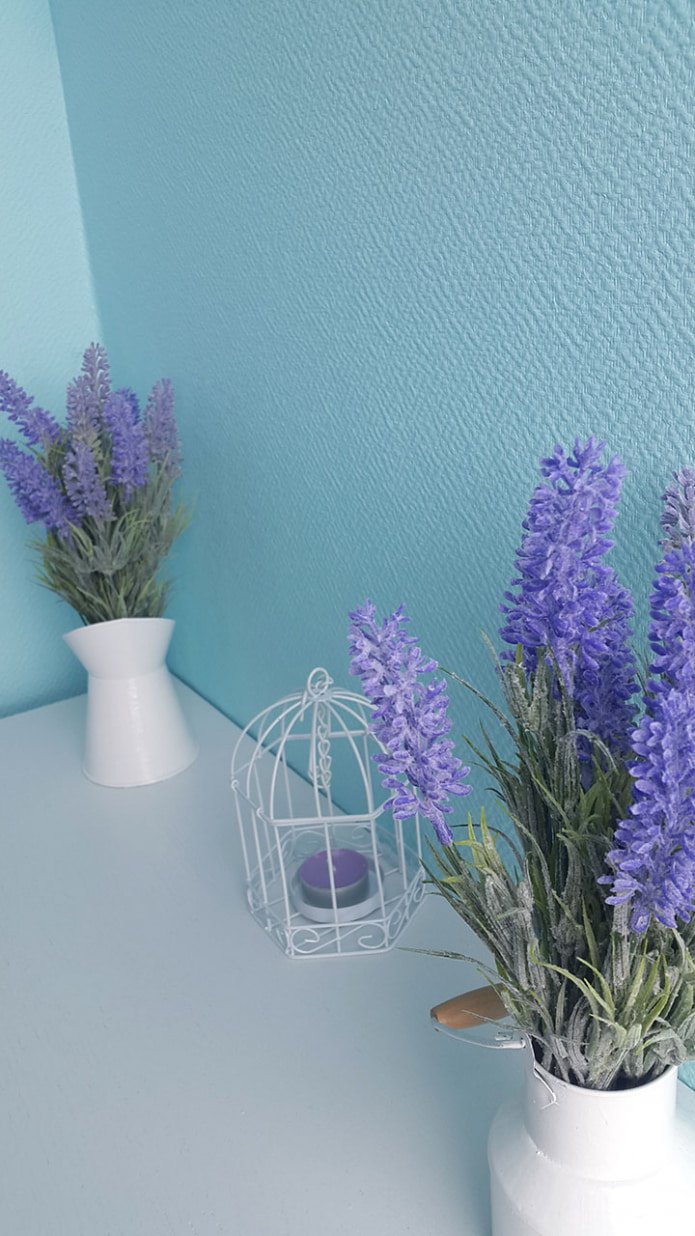
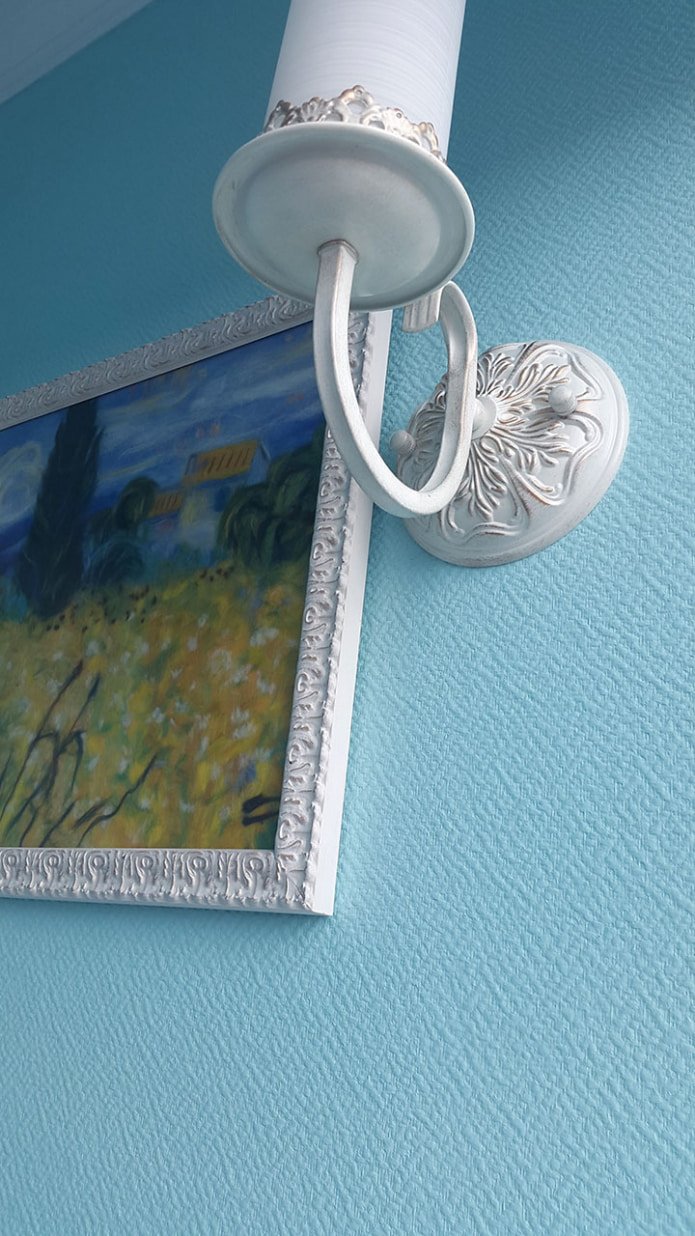
Composition
Glass wallpaper consists of natural materials: soda, clay, limestone, quartz sand. To transform from blanks into fiberglass, only high temperatures reaching 1200 degrees are required. The impregnation, which is applied upon completion of the work for the durability of the material, is based on modified starch.
Technical characteristics
Types of glass fiber wallpaper
By texture
Glass fiber wallpaper has two main types by texture, smooth and embossed. Wallpaper of different types can perform different functions.
Smooth
Smooth fiberglass wallpaper is also called cobweb or glass non-woven. This is due to the visual similarity. In addition to the aesthetic function, smooth fiberglass wallpaper also performs a practical one, namely, it is used to strengthen and level walls or ceilings. Smooth glass fiber wallpaper will be a good option for finishing the ceiling, the surface is smooth and even.
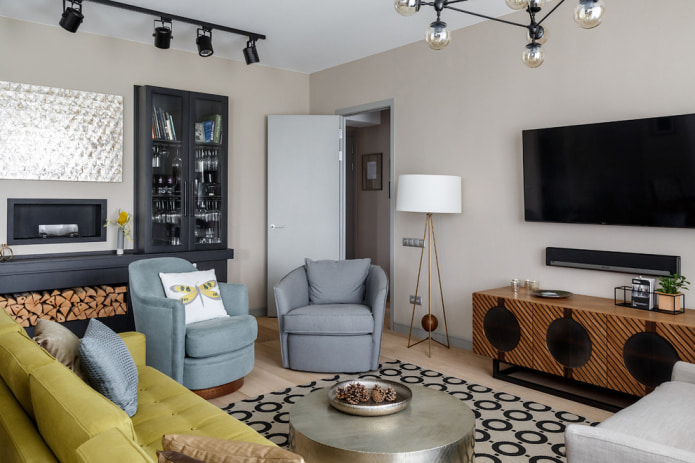
Relief
Another name is traditional fiberglass wallpaper. A material with a higher density compared to smooth wallpaper. The surface has a clearly defined relief, forming some kind of ornament or pattern. This type of fiberglass wallpaper is suitable for the final finishing of walls.
Rogozhka
The type of texture has the name of the fabric, which is distinguished by a unique and recognizable way of weaving threads, visually the surface of the fiberglass wallpaper looks like a piece of fabric. Weaving can be small, medium and large.
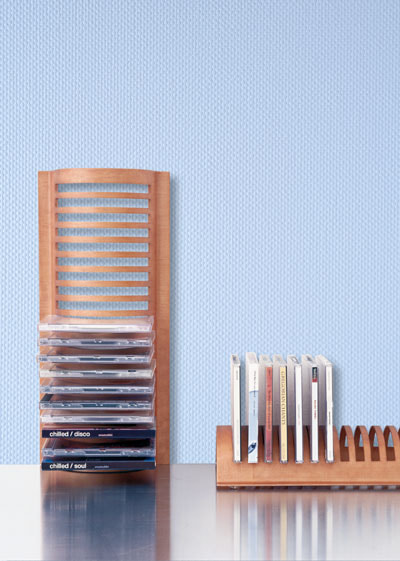

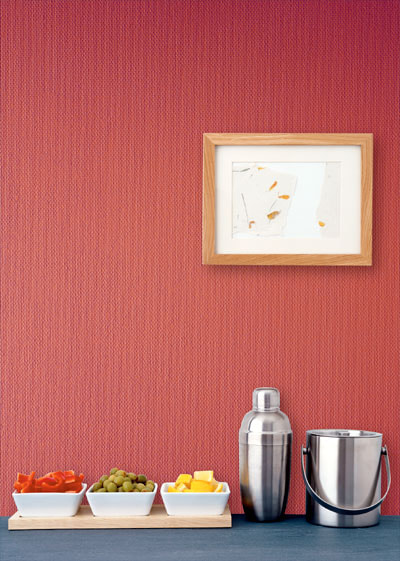

Rhombus
The weave of the glass fabric forms a diamond pattern along the entire length of the fabric. The pattern can be with equal or different sized figures. Diamonds are also distinguished as large, medium and small. Visually, the wall covering looks like jacquard.
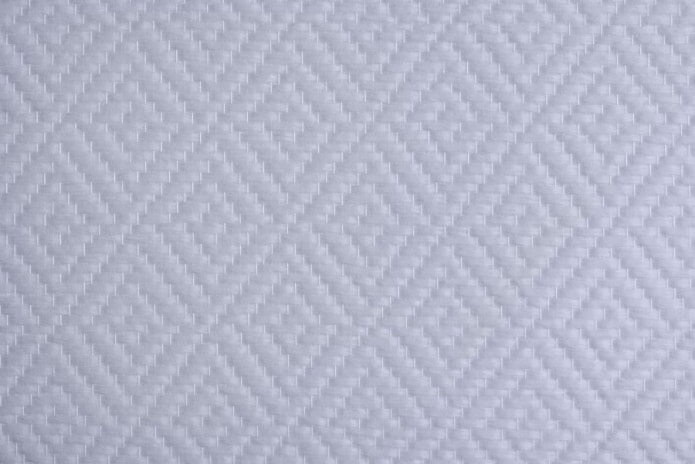
Herringbone
The glass fabric has a zigzag pattern along the entire length. Like other types, the pattern can be of different sizes. A small ornament is suitable for decorating small rooms, such as a hallway.
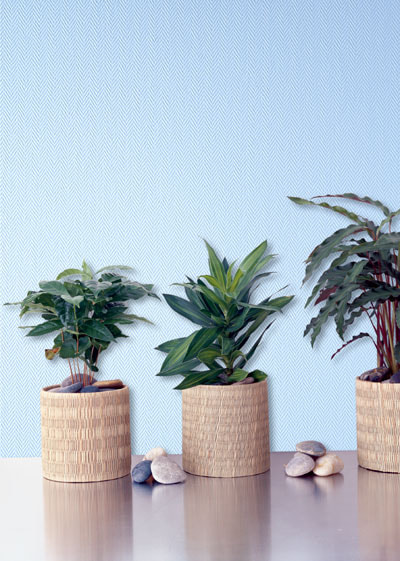

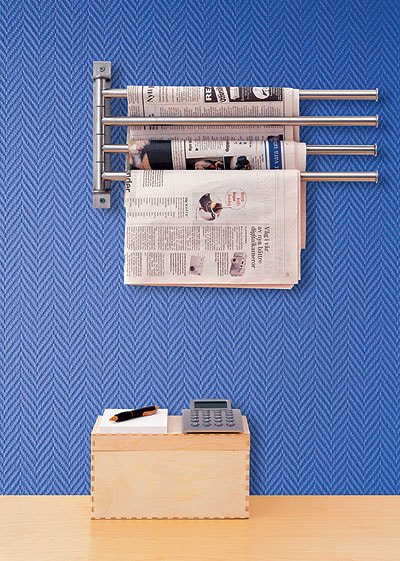

To order
Today, in addition to the usual patterns, glass fiber wallpaper is also made with other patterns; at the factory, you can also make an individual order for a unique weave according to an individual sketch.
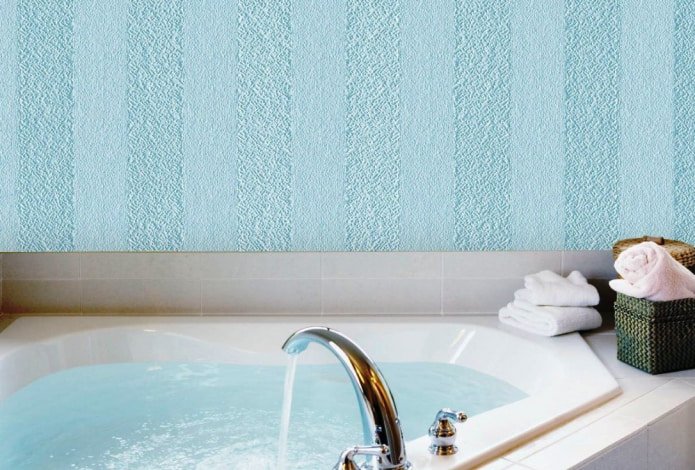
By quality
The quality of glass fiber wallpaper depends on its density, the higher it is, the stronger the material and the longer the service life.
By color
For painting
Glass fiber wallpaper for painting is made in a neutral color, most often it is white or beige. This background allows you to apply any shade to the surface without distorting it.
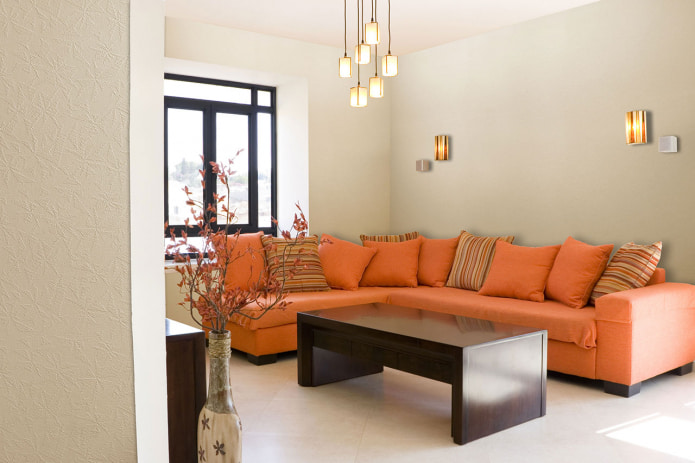
Colored
Colored glass wallpaper is not intended for painting, paint is added during production. This type of finishing is suitable for a room that does not require regular updating.
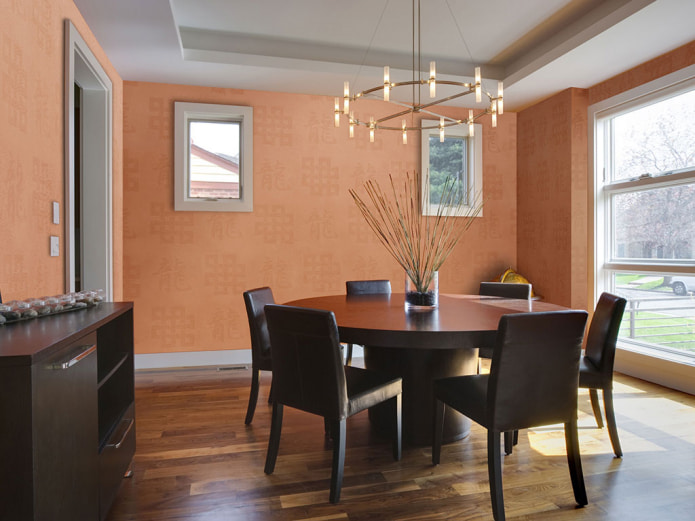
The photo shows a dining room in a classic style. The finishing is made of glass fiber wallpaper in orange tones.
By water resistance
During production, the degree of water resistance of glass fiber wallpaper is indicated on rolls or packaging. The designation has the form of waves. The more waves, the higher the water resistance of the material.
1 wave
Glass fiber wallpaper does not come into contact with water well. The surface can be washed with a slightly damp soft cloth or chamois.
2 waves
Denote the average degree of water resistance of the glass fiber fabric, the material tolerates contact with water better. The surface can be washed with a cloth or soft sponge and water or soapy water.
3 waves
The three-wave icon means a high degree of water resistance of the glass fiber wallpaper. When cleaning, it is allowed to use non-abrasive detergents.
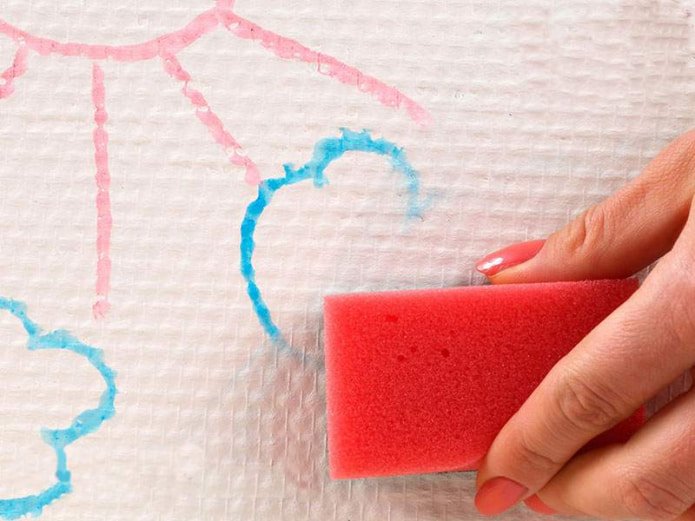
Pros and cons
Like any material, glass fiber wallpaper has a number of advantages and disadvantages compared to other finishing materials. Taking into account all the nuances, you can easily decide on the relevance of this type of wallpaper for a particular room.
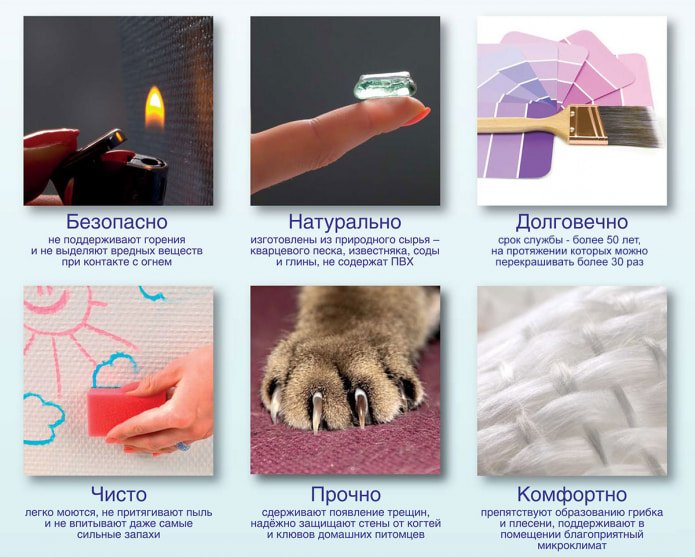
The photo shows infographics about the advantages of glass fiber wallpaper
How to properly glue to the walls?
Which glue to choose?
For fiberglass wallpaper, you need to use special glue, liquids for ordinary paper wallpaper will not work, they will simply be ineffective, since they will not withstand the weight of the glass fiber wallpaper. Today, construction stores offer a large selection of glue designed for gluing glass fiber wallpaper from a number of manufacturers, such as Oscar, Quelyd or Kleo. Their composition takes into account the features of fiberglass material, the mixtures can be purchased ready-made or dry.
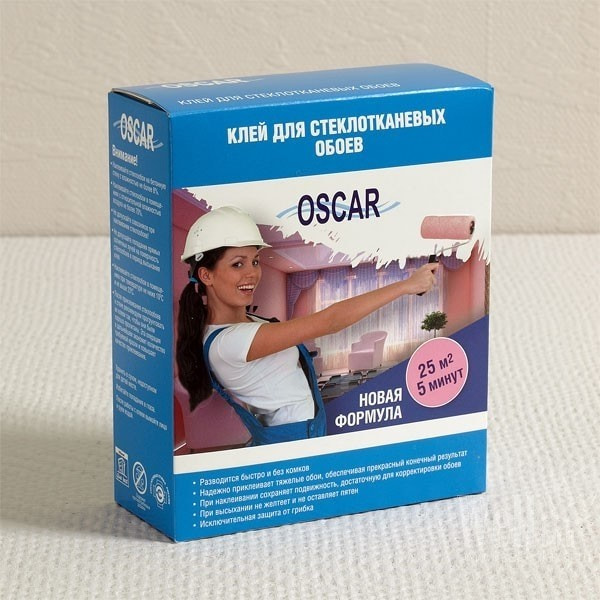

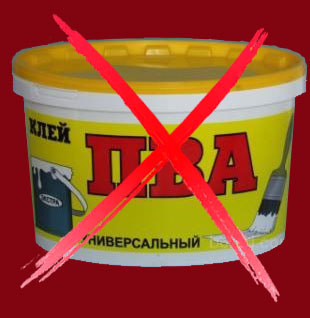

What surface is best for gluing?
Glass wallpaper should be glued to a prepared surface. To do this, remove the old finish and level the walls with putty; small irregularities can be left untreated. The walls are sanded and primed. After that, the surface is ready for finishing.
How long does it take to dry?
Glass wallpaper dries on average in a day or two. The room temperature should be between 10 and 25 degrees. It is also necessary to exclude the possibility of drafts or bright sunlight.
Preparing the walls
Before you start gluing the fiberglass material, you need to prepare the work surface.
- Remove the old finish,
- level the surface with putty,
- seal the drywall joints or small cracks with a painter’s mesh,
- sand,
- prime with a roller,
- after complete drying, the walls are ready for gluing the fiberglass wallpaper.
Gluing technology
Before you start working, you need to apply markings and prepare the glue. The markings will help you glue the wallpaper evenly, without tilting the side. To do this, draw a line perpendicular to the ceiling, which is measured using a plumb line or level. The glue will be ready 15 minutes after mixing.
- It is necessary to adhere to safety precautions, namely, wear protective glasses and gloves.
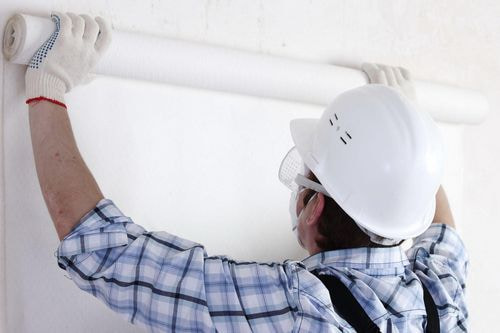
- Wallpaper is pasted starting from the door. The glue is applied to the wall, extending beyond the edges of the mark.
- A sheet of glass fiber wallpaper is applied from top to bottom and smoothed with a plastic spatula.
- The next sheet is glued end-to-end using the same principle.
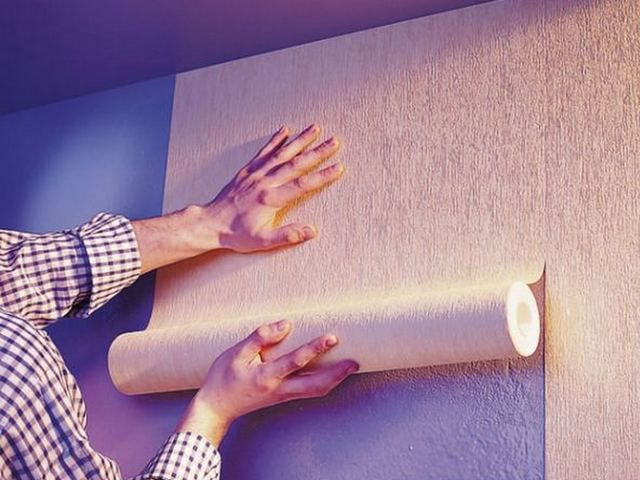
- The joints are pressed and smoothed last.
- After 24-48 hours, the wallpaper will dry and be ready for painting, if necessary.
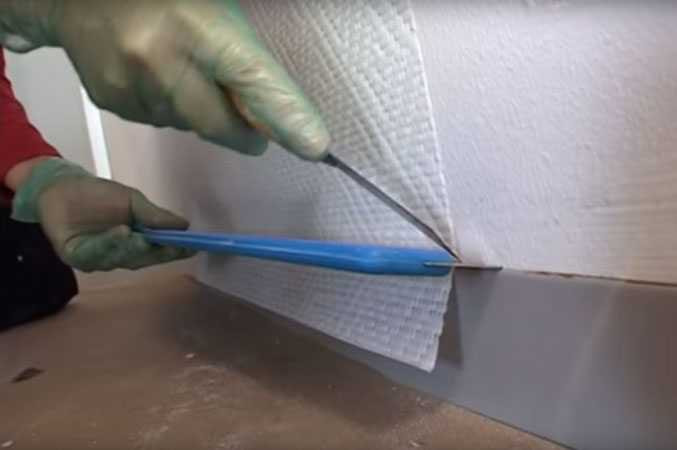








Video
Features of use on the ceiling
Gluing Glass fiber wallpaper is applied according to the same principle as on walls. Self-adhesive tape will help to check the strength of the old plaster on the ceiling.
- The direction starts from the window to the opposite wall.
- The glue is used only specifically for glass fiber wallpaper, any other will not withstand their weight.
- The glue is applied only to the ceiling.
- You need to act sequentially, the next strip of glue is spread after the sheet of wallpaper is glued.
- The pasting is done end-to-end, with an overlap on the walls.
- The excess is cut off after drying.
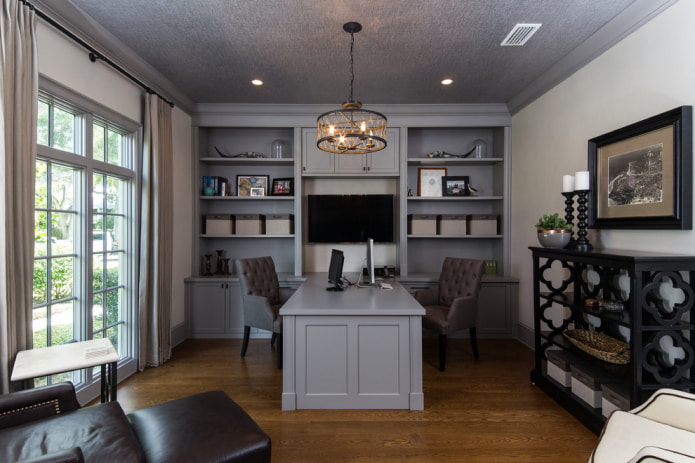
How to paint correctly?
What paint choose?
Water-dispersion paint is best suited for painting fiberglass coverings. The choice is due to the absence of toxic substances, quick drying and absence of unpleasant odors. Depending on the type of room, you can choose acrylic, butadiene-styrene or latex-based paint.
Step-by-step painting instructions
Painting fiberglass wallpaper has a simple procedure. However, its precise adherence helps to achieve the ideal result.
- Preparing the room and tools. Cover the floor, radiators and skirting boards with film or newspaper.
- Prime the walls, then wait until they dry completely,
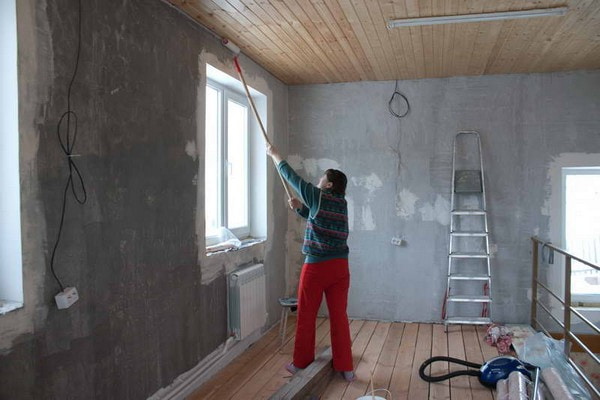
- paint the corners of the room with a brush,
- paint the walls with a roller,
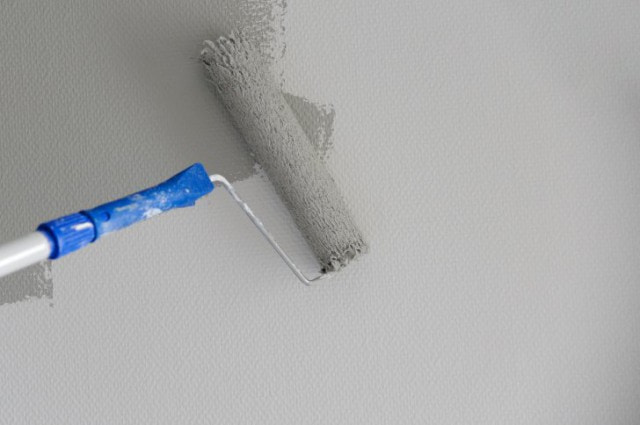
- avoid interruptions to ensure even application. Paint applied to a dry surface will be visible at the border.
- The second layer is applied after 12 hours.





How to choose glass fiber wallpaper?
Glass fiber wallpaper should be selected according to certain criteria, namely the pattern, manufacturer, class and composition.
- The higher the density of the glass fiber material, the stronger the material and the longer the service life,
- glass fiber wallpaper of lower density is not as durable, but has a low cost,
- the pattern is selected depending on personal preferences, it is also possible to make an individual order for a unique pattern,
- the more voluminous the pattern, the more times it can be covered with paint,
- the ideal composition is a ratio of 70% glass and 30% impregnation,
- the edges in the roll should be even, and the weaving neat.
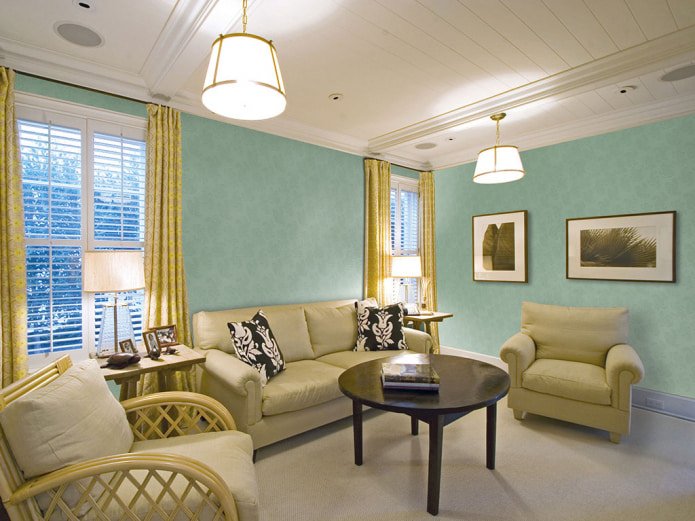
Photo ideas in the interior
For the bathroom
Glass wallpaper will be a good option for finishing the bathroom. They are not afraid of moisture and will not allow fungus and mold to appear.
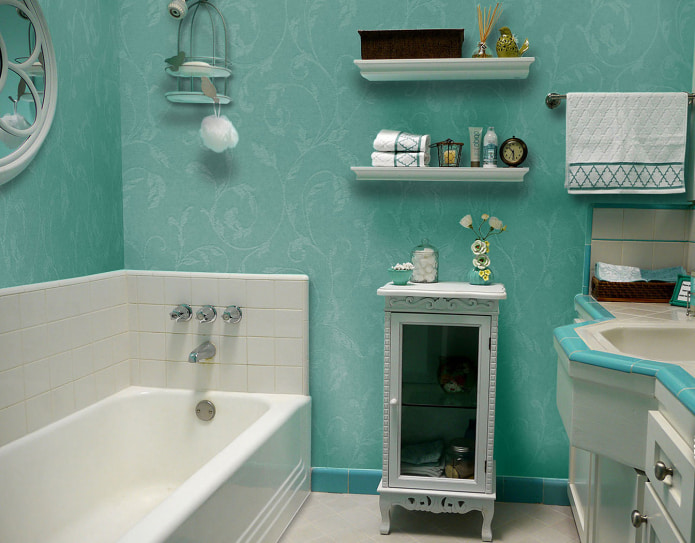
The photo shows a bright bathroom. The finishing is made of turquoise fiberglass wallpaper.
For greater strength and reliability, the fiberglass canvas is covered with washable paint.
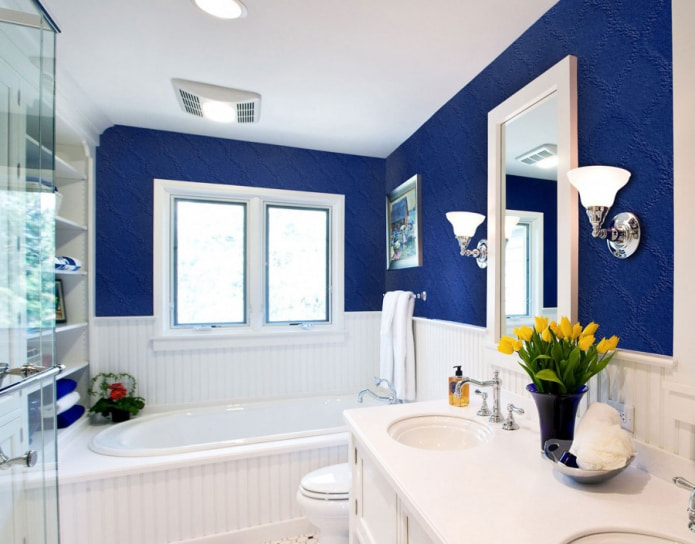
The photo shows a spacious bathroom with blue fiberglass wallpaper finishing.
For the kitchen
A big advantage can be considered the high fire resistance of fiberglass wallpaper.
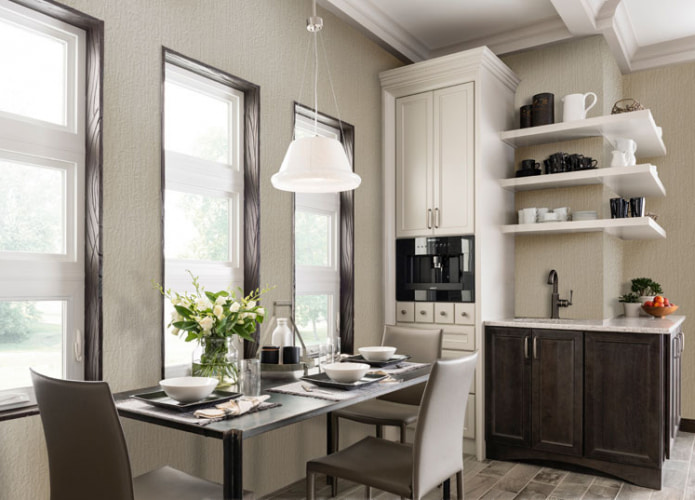
The photo shows a modern kitchen with glass wallpaper in neutral tones.
This fact is very relevant in the kitchen. At high temperatures, glass fabrics do not emit harmful substances. In addition, replacing glass wallpaper will be cheaper, and the work is easier. Suitable for finishing the dining area.
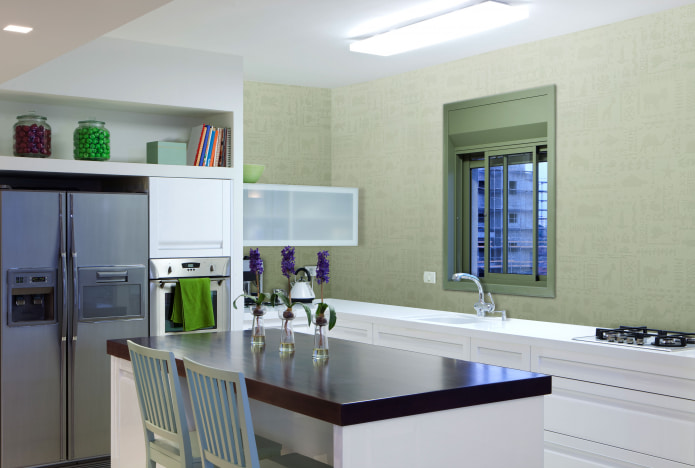
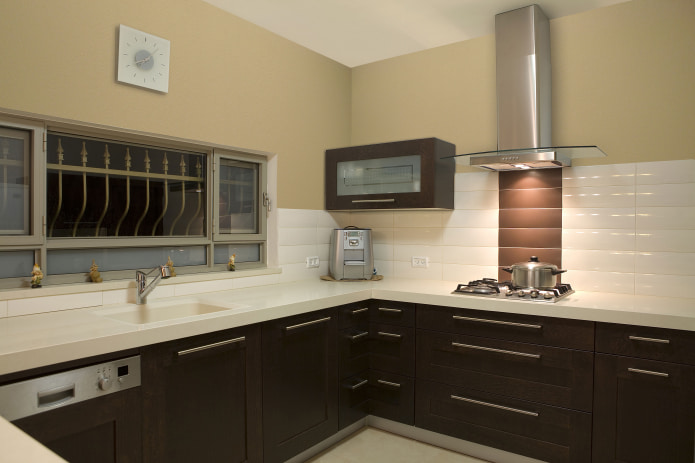
In the toilet
In the toilet, as well as in the bathroom, it is important to minimize the possibility of fungus and mold. Glass wallpaper will help with this, they will be a good alternative to ceramic tiles. In addition, their cost is lower than that of tiles.
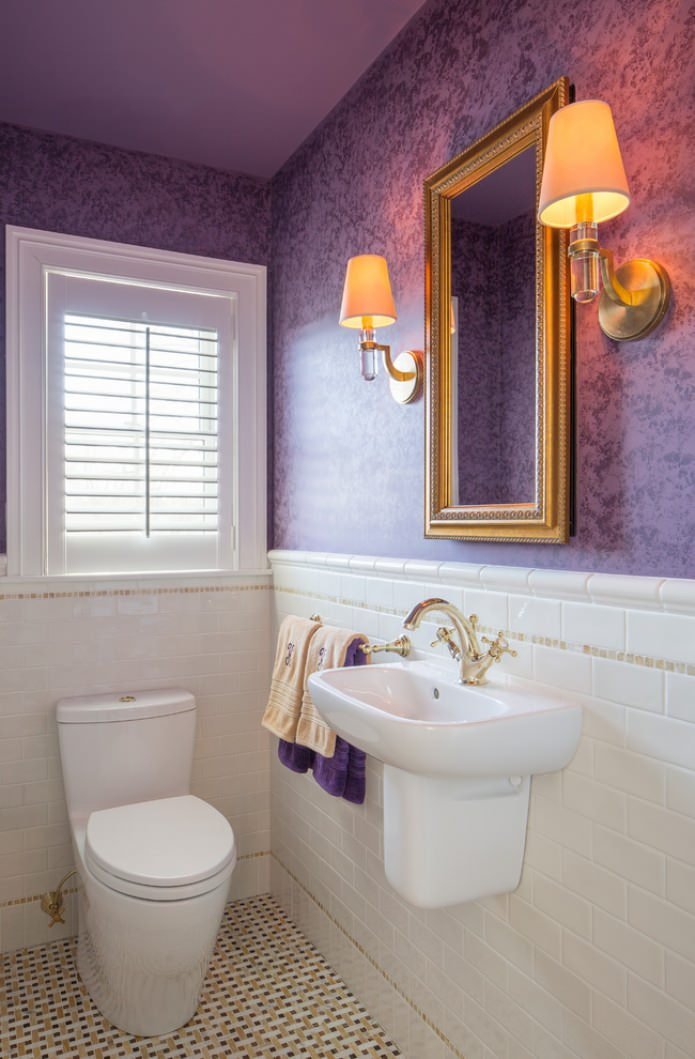
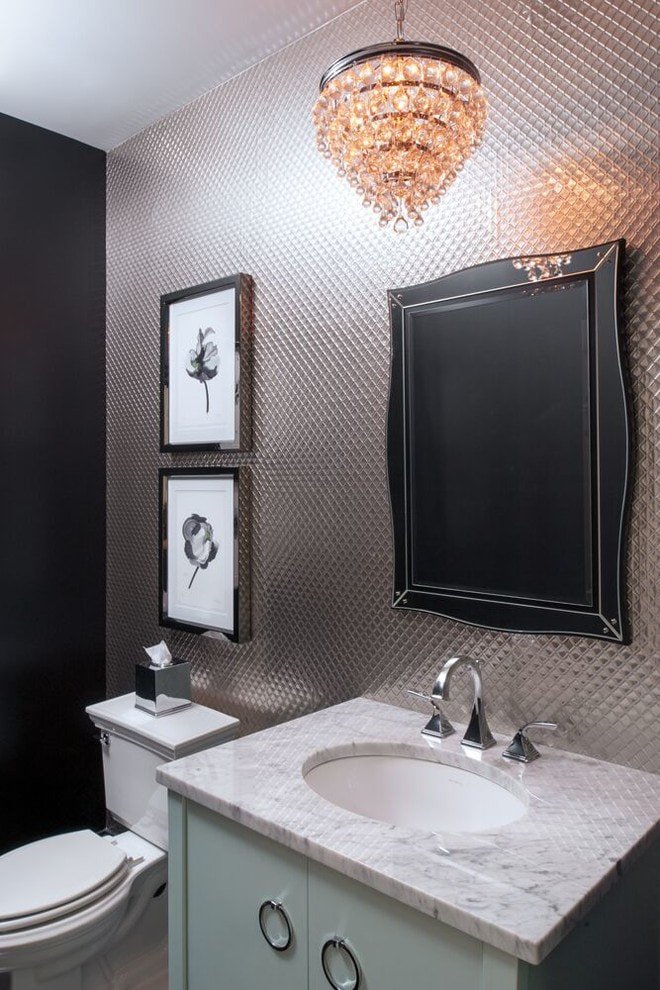
In the hallway
The strength of the glass fabric material will prevent mechanical damage to the surface, and the waterproof coating is easy to care for and keep clean.
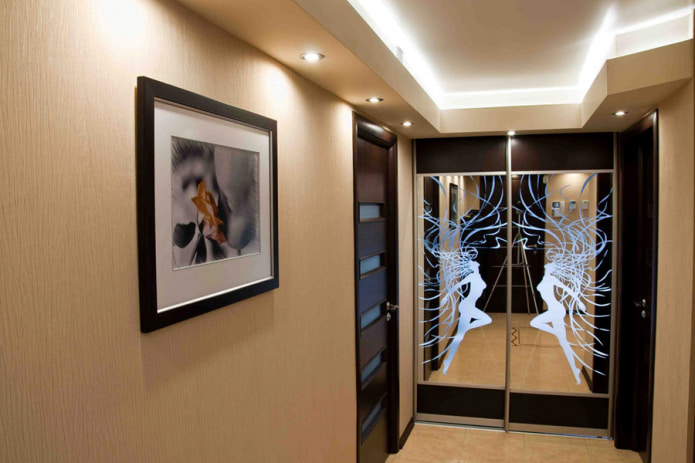
On the balcony
Glass fabric wallpaper is not afraid of temperature and humidity changes, it will be a practical solution for finishing a glazed balcony or loggia.
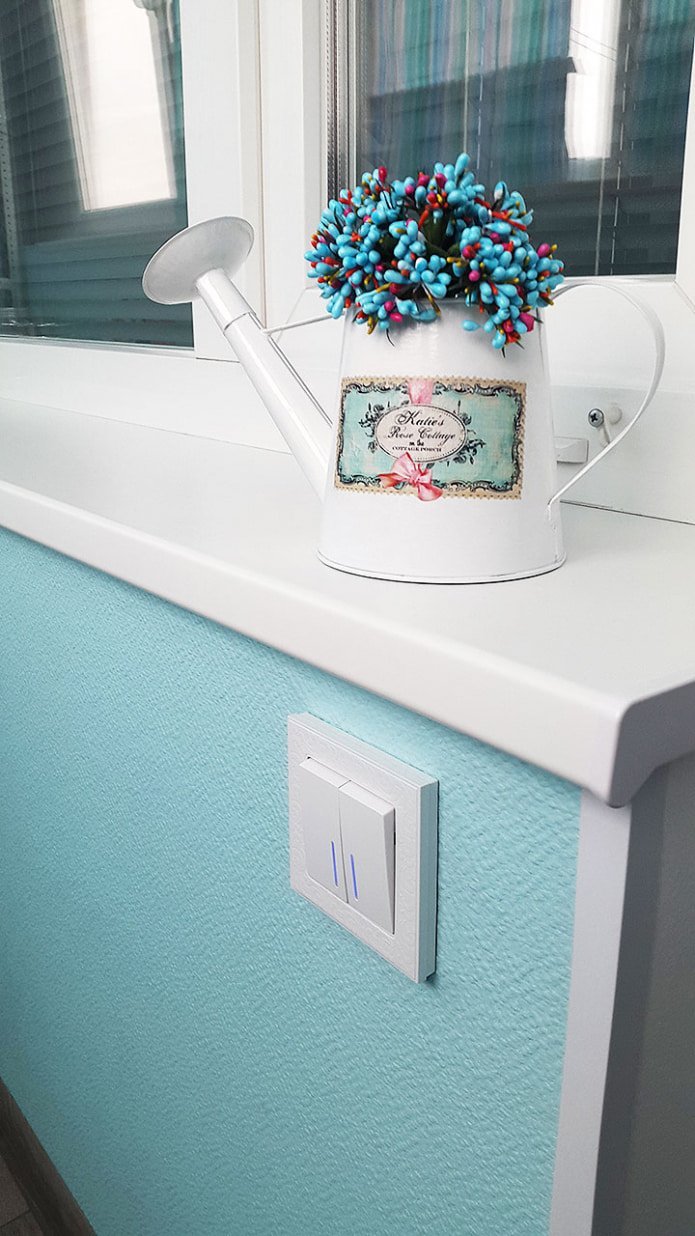
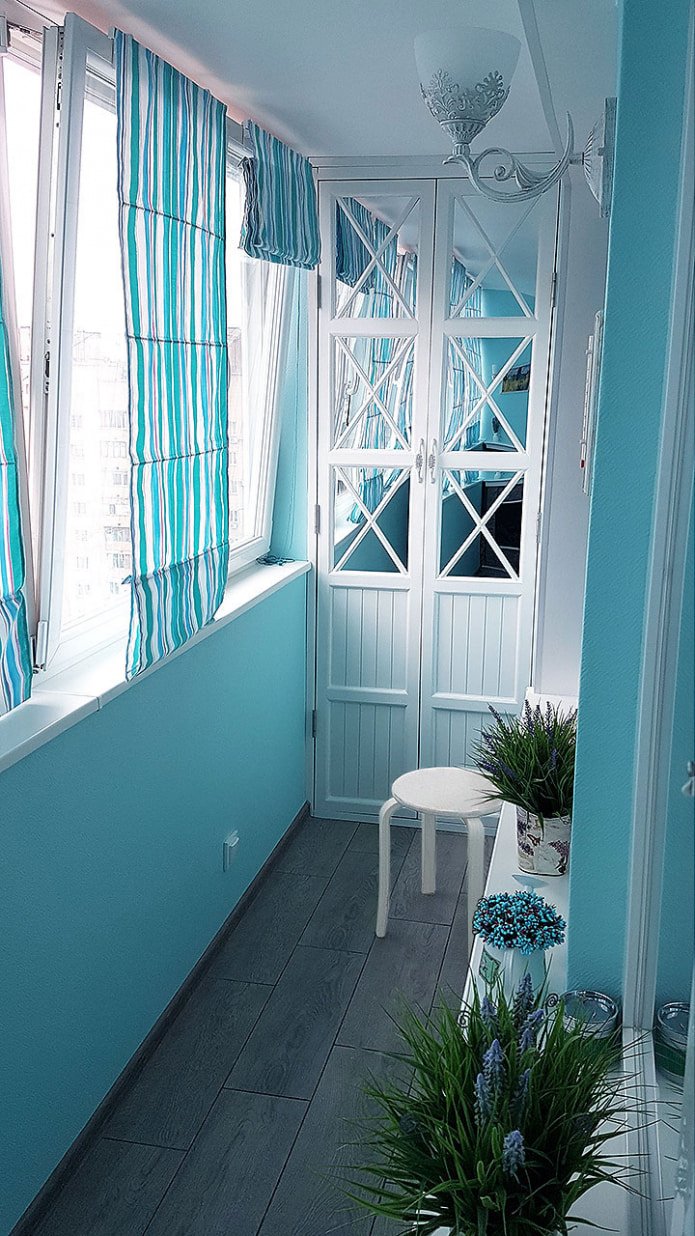
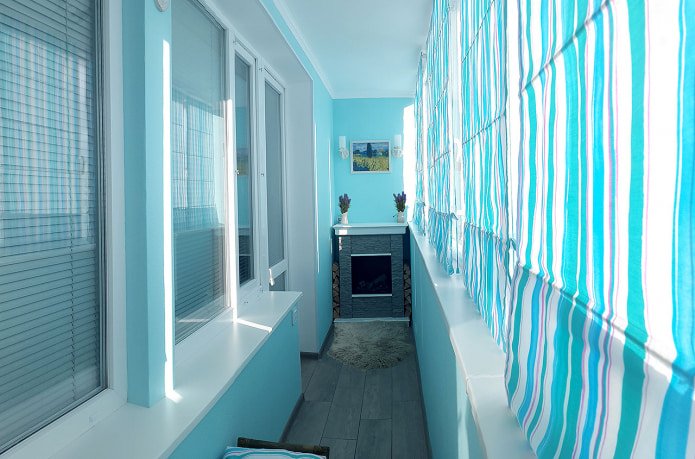
Tips for wallpaper care and washing
The glass fiber wallpaper material itself is quite durable and can withstand various cleaning methods. The method must be selected depending on the paint covering the surface.
- To remove stains from the fiberglass surface, you can use non-abrasive detergents,
- Depending on the moisture resistance of the paint, you can use a soft suede or brush,
- For preventive maintenance, it is enough to remove dust with a dry soft brush.
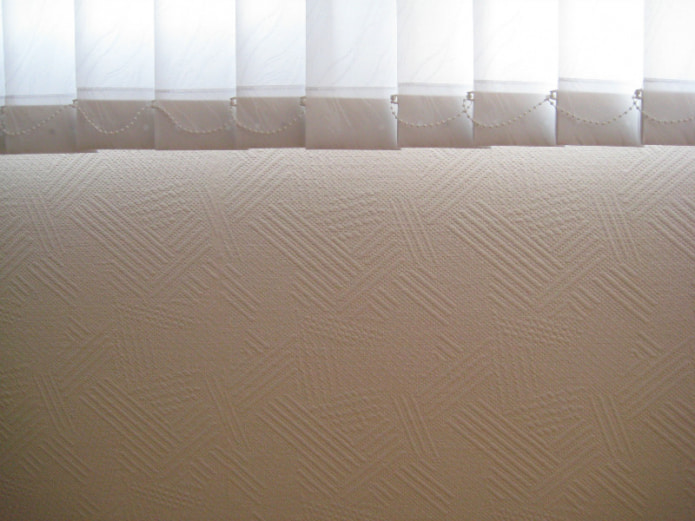
Now reading:
- More than 40 images of silk wallpaper for walls: liquid and fabric. Care and application technologies.
- Self-leveling floors: 35 photos with amazing design solutions
- Satin stretch ceilings: more than 60 photos and current design ideas
- Roller blinds for the balcony: 47 photos, tips for choosing and installing.
- Your Ultimate Guide to Buying a Used Renault Modus